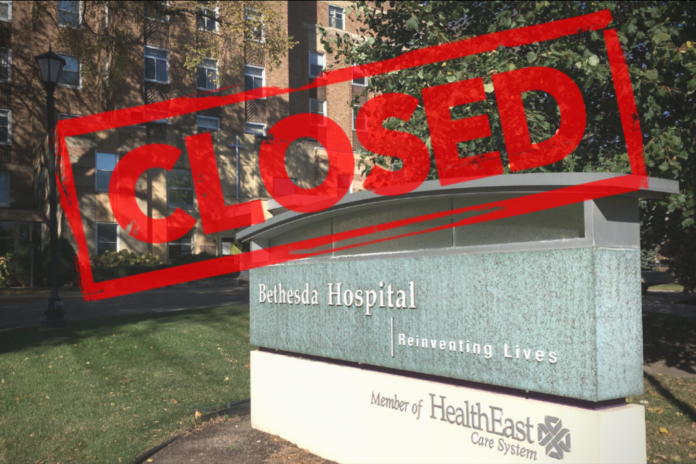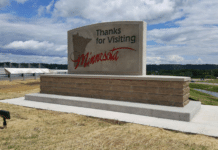Years ago, I graduated with a degree in nursing. The last two years of training were spent at Bethesda Hospital, just two blocks behind the Minnesota State Capitol. On Monday, October 5, Fairview announced the closure of Bethesda. According to news reports, it may become a homeless shelter.
There’s an epidemic of hospital closures. The Public News Service reports, “Over the past 15 years, six rural hospitals and related clinics have closed in Minnesota. Nationally, 15 rural hospitals have closed in the U.S. this year.” Forty-seven hospitals closed nationwide in 2019, and 130 hospitals have closed across the US since 2010, the year the “Affordable Care Act” became law.
Clearly, these closures are not because of COVID-19, although the restriction of elective surgeries and the hesitation to seek care due to the virus has certainly not helped.
Government policy is to blame. Hospitals, clinics, and medical practices have been assailed by laws that make it difficult to operate. As regulations and their unfunded mandates have grown in recent years, including the mandate to use government-certified electronic health records (EHRs), the costs have become unbearable.
When hospitals close in rural communities, patients face longer distances to care, even in emergencies. One out of every 5 Americans lives in a rural community, including farmers and people in small towns.
The trouble began when Medicare, a socialized system for the elderly, became law in 1965. This “free care for seniors” law caused a run on the U.S. Treasury. In response, single-payer advocate U.S. Senator Ted Kennedy (D-MA) authored the HMO Act of 1973. The HMO, now known as a “health plan,” was embraced by government and employers. As a result, Americans now accept limits imposed on their choices, doctors, and treatment, despite paying astronomical premiums. This has made it easier for single-payer proponents to push for a fully socialized system — either by eliminating the health plans (Medicare for All), or by paying the plans as government contractors (e.g. Medicare Advantage).
Traditional catastrophic insurance policies disappeared when the ACA mandated “qualified health plans” for all. These corporate plans centrally control the dollars, the data, and the medical decisions. They control which hospitals you go to. Hospitals that don’t make it into the plan’s network find it more difficult to stay open.
The ACA also established “Accountable Care Organizations” or ACOs, which some have called “HMOs on steroids.” ACOs consolidate and control the dollars used across a health care system, socializing payment for care. As of January 2020, there were “558 Medicare ACOs serving more than 12.3 million beneficiaries with hundreds more commercial and Medicaid ACOs serving millions of additional patients,” reports the National Association of ACOs.
This is socialized medicine, American-style. Your health plan may look “private,” but it’s corporate socialism. By law, health plans can use their own definitions of “medical necessity” to deny you access to the medical care you need—and to keep your premium dollars in corporate coffers.
Dangerous conflicts of interest have emerged. Health plans, which pay the bills for patient care, are buying and controlling hospitals. Hospital systems are buying health plans and physician practices, controlling dollars for care and coverage. As physicians become employees of these corporations, paid to treat patients according to corporate treatment protocols, they may find themselves trapped in ethical dilemmas.
All is not lost. Escape routes back to patient and doctor freedom are popping out. Our organization launched The Wedge of Health Freedom to identify, locate and promote direct-pay (cash, check or charge) practices that are free from government and health plan controls (jointhewedge.com). Also check out direct-pay surgery centers such noinsurancesurgery.com and as the affordable cash-based Surgery Center of Oklahoma. Eventually, even direct-pay hospitals may emerge.
This is America. Even though hospitals are closing and consolidation is limiting personal choices, socialized medicine is not foregone conclusion. Now that you understand how socialized medicine is being put into place in your own back yard, you can fight against it. You can also choose an independent, patient-centered physician who’s refused to be part of the system. Your freedom, your health, and someday your life may depend on it.
– – –
Twila Brase, RN, PHN, is president and co-founder of Citizens’ Council for Health Freedom.


















